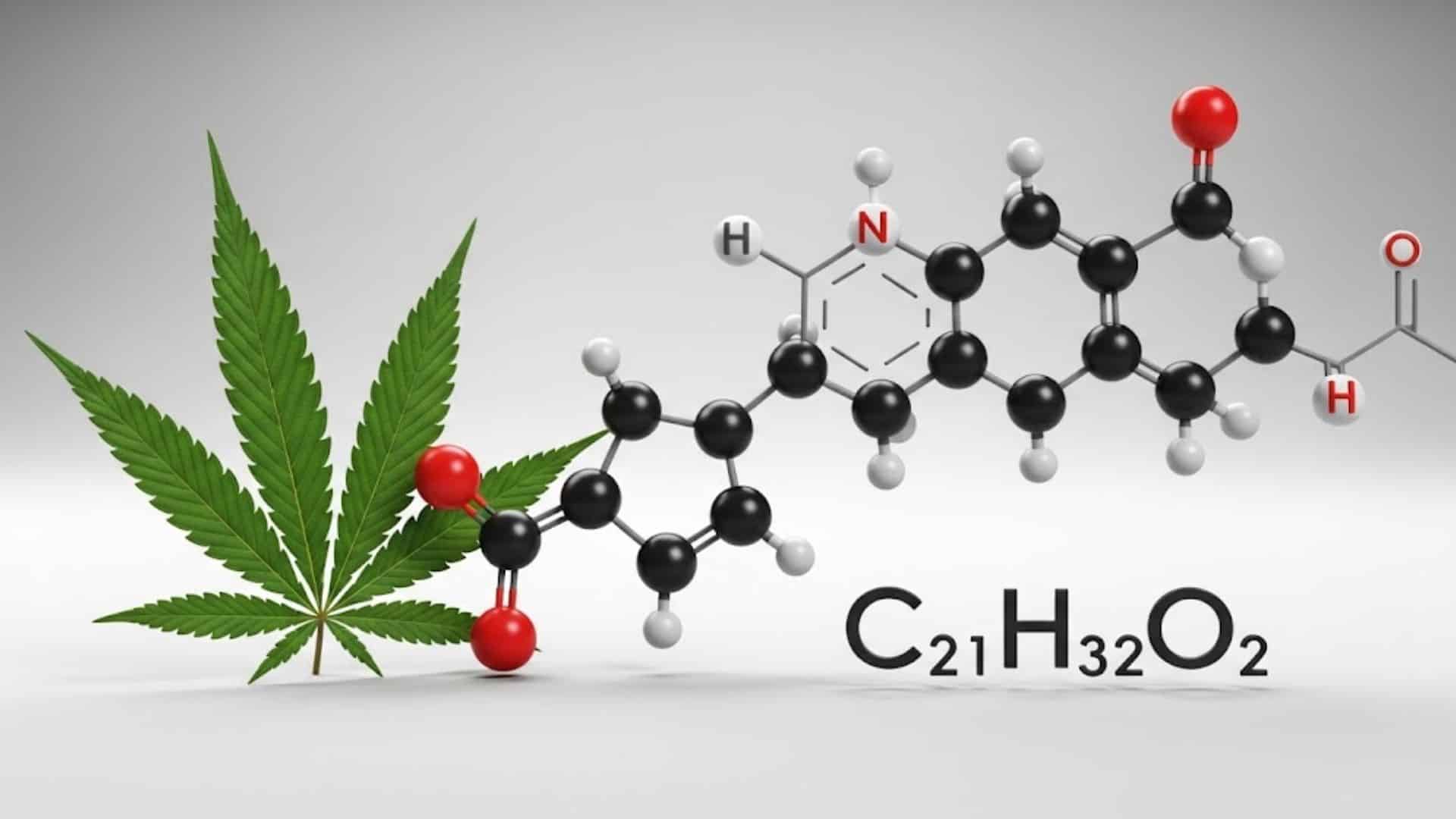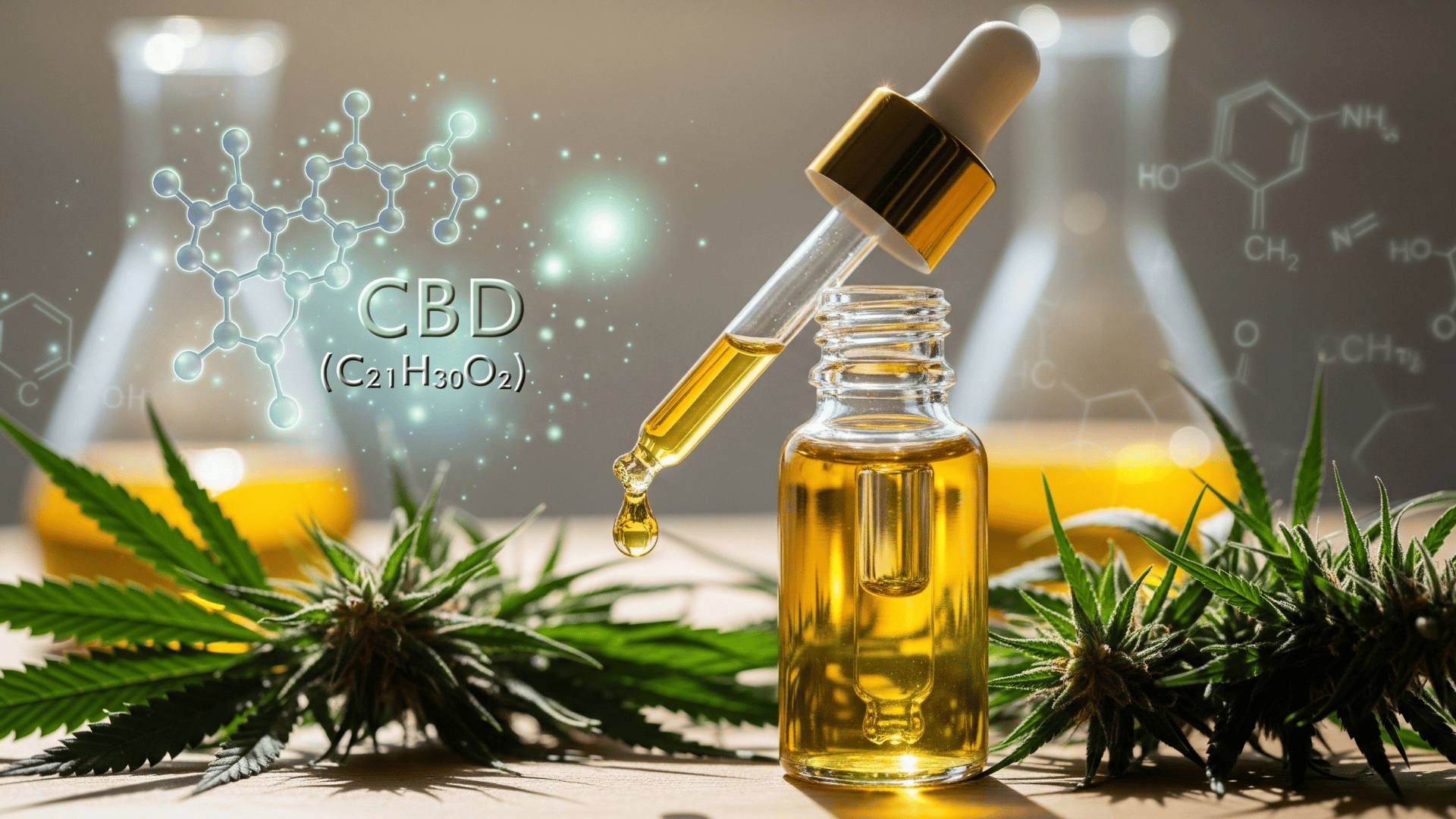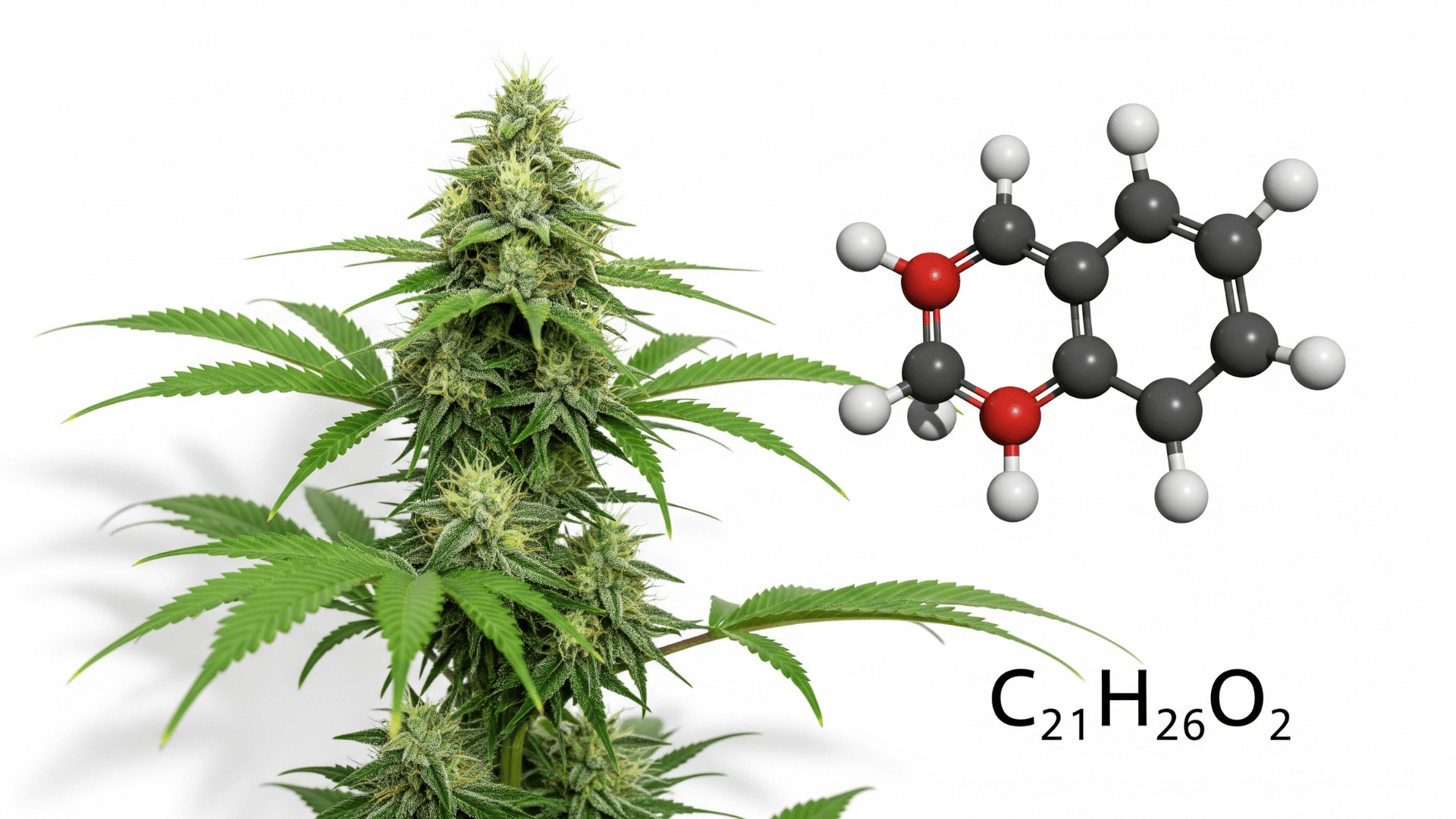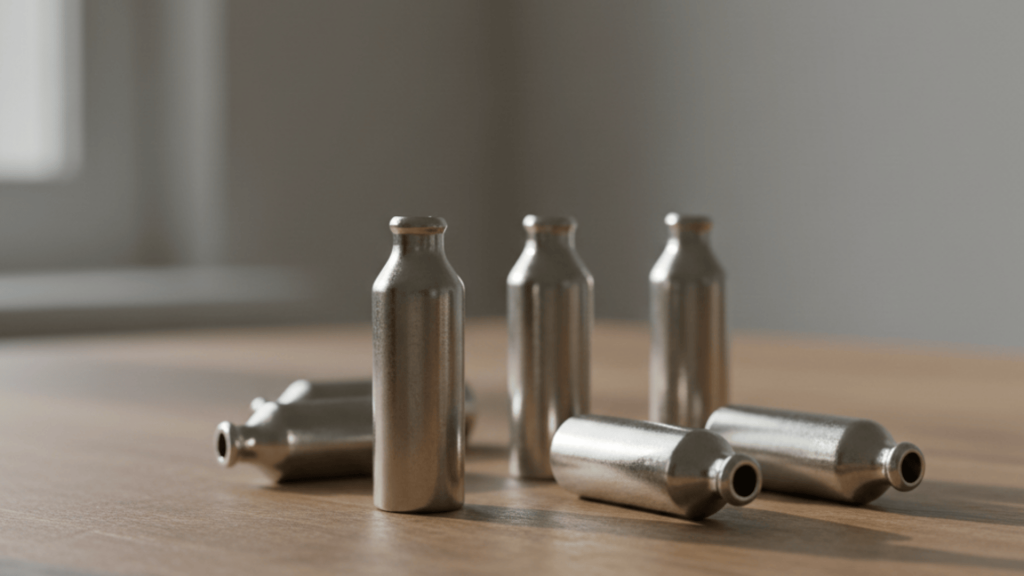When I first started learning about cannabinoids, I was confused by the differences between CBG vs. CBD, vs. CBN. Even though they all come from hemp or cannabis and are non-intoxicating, each one works differently in the body.
For me, CBD has been the go-to for calming stress and supporting balance. CBG, often referred to as the “mother cannabinoid,” is said to have a more energizing effect and can aid in focus. On the other hand, CBN is known for its relaxing effects, which I find useful at night.
By comparing them side by side, I’ve realized that each has its unique benefits. Knowing how they differ makes it easier to choose the right option for health and wellness.
What are Cannabinoids?
Cannabinoids are natural compounds found in the hemp and cannabis plants that interact with the body’s endocannabinoid system (ECS).
The ECS is a network of receptors, mainly CB1 (found in the brain and nervous system) and CB2 (found in the immune system and tissues), which help maintain balance in mood, sleep, pain response, and overall wellness.
Different cannabinoids connect with these receptors in unique ways, creating a variety of effects. For example, some may influence relaxation, while others may support focus or immune health.
Among the many cannabinoids, CBG, CBD, and CBN stand out as some of the most researched non-psychoactive compounds, each offering distinct wellness benefits without causing a “high.”
What is CBG?
CBG (cannabigerol) is often called the “mother cannabinoid” because it’s the precursor from which other cannabinoids like CBD and THC are formed. Despite its importance in the plant’s chemistry, it’s quite rare, usually making up less than 1% of most cannabis strains.
What makes CBG exciting is its potential wellness benefits. Early studies suggest it may support mental clarity and focus, promote gut health, and even show strong antibacterial properties.
However, research on CBG is still in its early stages, so most findings are preliminary. Because it’s non-intoxicating, many people are looking at CBG as a promising option for natural wellness without the mind-altering effects of THC.
What is CBD?
CBD (cannabidiol) is the most widely studied and readily available cannabinoid today. It’s completely non-intoxicating, which makes it popular for people who want the potential benefits of cannabis without the “high.”
You’ll find CBD in many forms, including oils, gummies, capsules, and even infused beverages. Research suggests that CBD may help relieve anxiety, reduce inflammation, and support better sleep.
One of the biggest milestones for CBD was the FDA’s approval of Epidiolex, a prescription medicine for certain types of epilepsy, showing its medical potential.
Because of its versatility and accessibility, CBD has become a go-to option for many looking to naturally support their overall health and wellness.
What is CBN?
CBN (cannabinol) is a unique cannabinoid that forms naturally when THC breaks down over time through exposure to heat, air, or light.
Unlike CBD and CBG, CBN can be mildly psychoactive in very large amounts, but it is generally recognized for its calming and sedative qualities. Because of this, many people explore CBN as a natural sleep aid. Early research also points to potential uses in pain management and appetite stimulation.
However, compared to CBD, CBN is still less researched, so its effects and applications are not yet fully understood. Even so, it’s gaining attention as a promising option for relaxation and nighttime wellness support.
Quick Look at CBG, CBD, and CBN
| Cannabinoid | Nickname | Main Uses | Intoxication |
|---|---|---|---|
| CBG | “Mother Cannabinoid” | Focus, gut health, antibacterial | ❌ Non-intoxicating |
| CBD | “The Popular One” | Anxiety, inflammation, sleep | ❌ Non-intoxicating |
| CBN | “The Sleepy One” | Sleep, relaxation, pain relief | ⚠️ Mild in high doses |
CBG vs. CBD vs. CBN: Main Differences
While CBG, CBD, and CBN are all non-intoxicating cannabinoids, they differ in origin, effects, and availability. Understanding these distinctions helps in choosing the right compound for specific wellness needs.
Below is a breakdown of their key differences, along with scientific references to support what we know so far.
1. CBG: The Precursor Cannabinoid

CBG (C₂₁H₃₂O₂), known as the “mother cannabinoid,” is the chemical precursor to both CBD and THC. Research suggests it may support focus, gut health, and has potential antibacterial effects.
Since CBG makes up less than 1% of most cannabis plants, it’s harder to source than CBD. While clinical studies are still limited, its antibacterial properties have been documented in pharmacological research (PubChem, Cannabigerol).
2. CBD: The Most Common Cannabinoid

CBD (C₂₁H₃₀O₂) is the most abundant non-intoxicating cannabinoid in hemp, well studied for its calming, anti-inflammatory, and neuroprotective effects.
Unlike THC, it doesn’t cause a high, which makes it widely accessible in oils, edibles, and supplements. The FDA-approved drug Epidiolex proves CBD’s effectiveness in treating severe epilepsy (FDA Epidiolex Approval), while multiple studies show it helps reduce anxiety and inflammation (NCBI: Cannabidiol).
3. CBN: The Sleep-Support Compound

CBN (C₂₁H₂₆O₂) is formed when THC degrades through heat, air, or time. It’s mildly psychoactive in very high amounts but is recognized for its sedative qualities, making it a potential sleep aid.
Early studies also indicate benefits in pain relief and appetite stimulation (NCBI: Cannabinol). However, it’s less researched than CBD, and since it’s derived from THC breakdown, CBN is less abundant and harder to find in high concentrations.
Potential Benefits and Uses of CBG vs. CBD vs. CBN Compared
Each of these cannabinoids shows promise in different areas of health and wellness. Research is ongoing, so these findings reflect potential and not definitive medical claims.
Here’s a clearer breakdown of how CBG, CBD, and CBN differ in benefits, focus, and availability.
| Cannabinoid | Wellness Focus | Research Status | Availability |
|---|---|---|---|
| CBG (Cannabigerol) | Gut health, eye protection, and antibacterial potential | Early-stage research; limited human studies (PubChem: CBG) | Rare |
| CBD (Cannabidiol) | Stress relief, pain reduction, improved sleep, FDA-approved for seizures | Most studied; numerous human and clinical studies (NCBI: CBD) | Widely accessible in oils, edibles, and topicals |
| CBN (Cannabinol) | Sleep aid, mild pain relief, potential appetite stimulant | Early yet growing interest; fewer studies than CBD (PubChem: CBN) | Limited; often included in sleep blends |
Interesting Tidbit: Even though CBG, CBD, and CBN share similar chemical frameworks, their unique interactions with CB1 and CB2 receptors explain why their effects feel so different.
Safety and Side Effects of CBG, CBD, and CBN
Most people tolerate CBG, CBD, and CBN well, but how the body reacts can vary depending on the compound and usage. Instead of general effects, here’s what research and user reports suggest for each:
- CBG: May cause digestive upset in high doses since it interacts with gut receptors.
- CBD: Can sometimes interfere with medications metabolized by the liver (consult a doctor if on prescriptions).
- CBN: More likely to cause drowsiness than the other two, making it better suited for nighttime use.
- Across all three: Start with a low dose, as individual tolerance differs widely.
- Always ensure products are lab-tested to confirm purity and avoid contaminants (like pesticides or heavy metals).
By looking at safety individually instead of broadly, it’s clearer how CBG vs. CBD vs. CBN differ in potential side effects, helping readers make more confident, informed choices.
Final Thoughts
After digging into the world of CBG vs. CBD vs. CBN, I’ve come to see just how unique each cannabinoid really is.
For me, CBG feels like the quiet hero with its gut and focus support, CBD remains the most reliable for everyday balance and stress relief, while CBN stands out when deep rest is the goal.
What excites me most is that research is still uncovering new ways these cannabinoids may support wellness, which makes the future of plant-based health even more promising.
For me, choosing the right cannabinoid depends on what I need in the moment: focus, calm, or sleep. If you’re curious too, start small, listen to your body, and discover which one becomes your ideal match.






